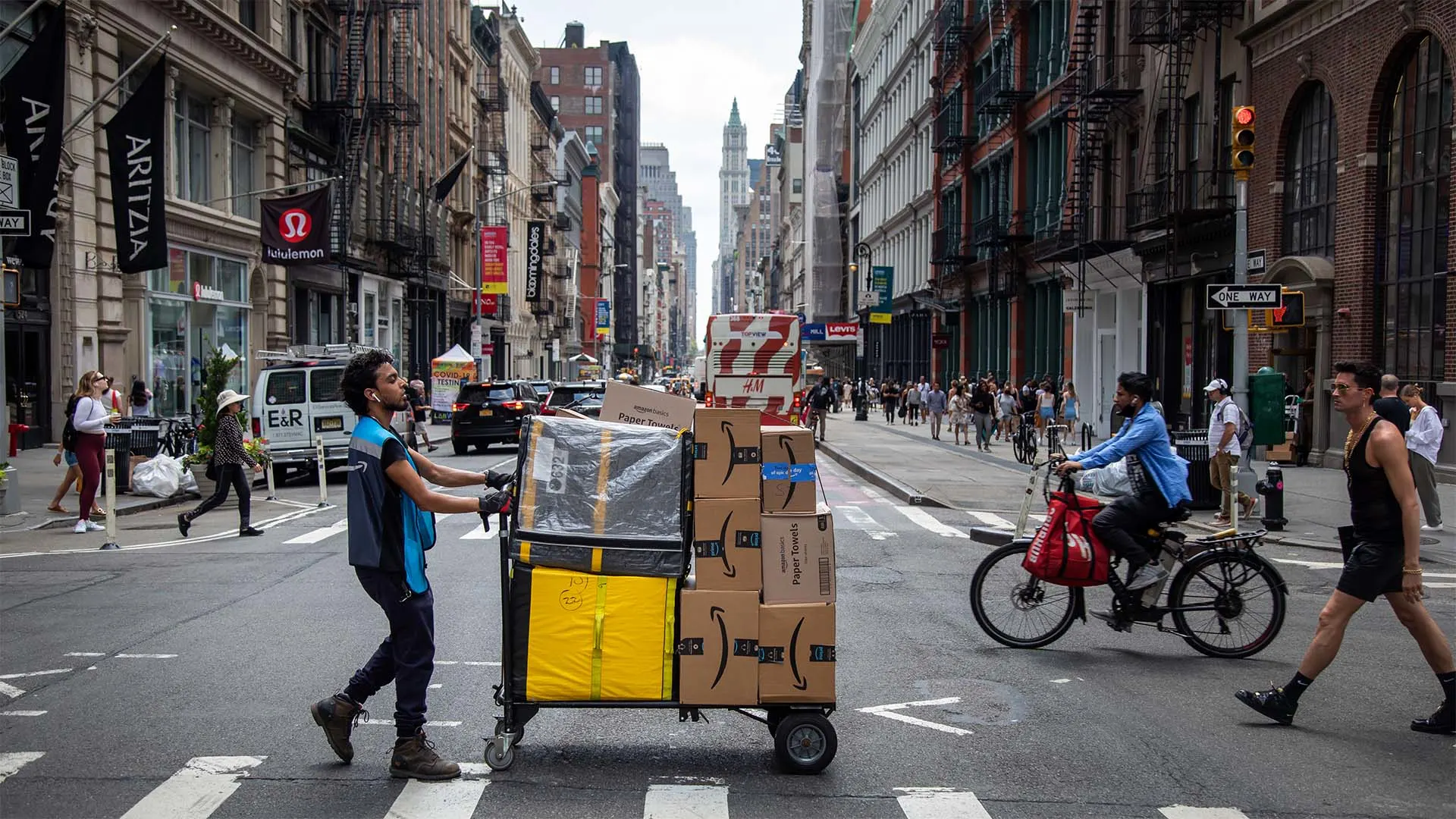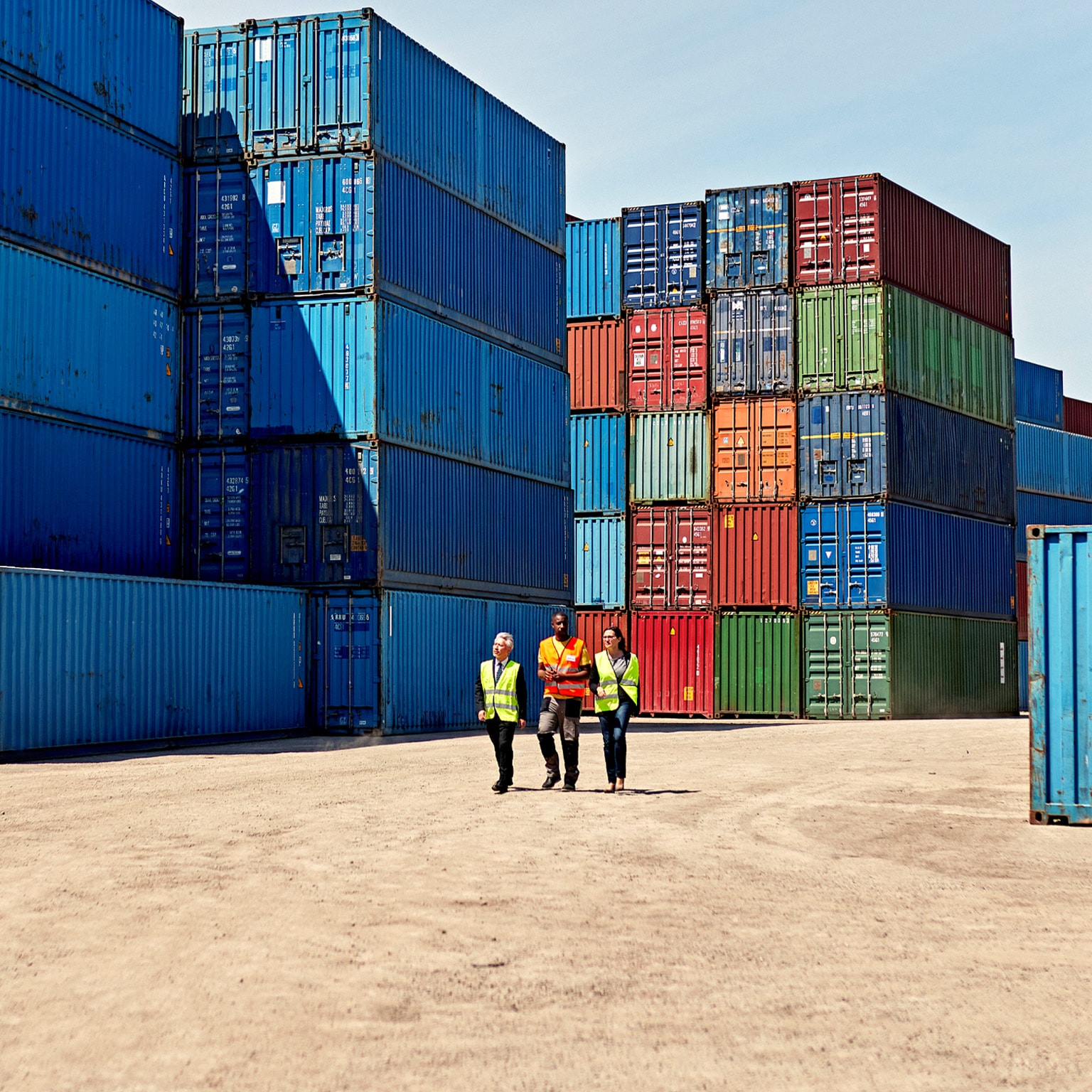Netflix, Disney, and Warner Bros. stock prices fall after Trump threatens tariffs on foreign-made movies
Stock prices for Netflix, Disney, and Warner Bros. Discovery fell this morning after President Trump took to social media to warn of major incoming tariffs for films made overseas. This Sunday, Trump used Truth Social to announce another escalation of his ongoing trade war. In the post, Trump claimed that America’s movie industry is dying “a very fast death,” as “Other Countries are offering all sorts of incentives to draw our filmmakers and studios away.” The president went on to call this rise of foreign production both “propaganda” and a national security threat, ending by stating that, “I am authorizing the Department of Commerce, and the United States Trade Representative, to immediately begin the process of instituting a 100% Tariff on any and all Movies coming into our Country that are produced in Foreign Lands.” Howard Lutnick, the U.S. commerce secretary, responded to Trump’s rant with the brief note posted to X: “We’re on it.” Neither Trump nor Lutnick provided any clarification on how such a tariff would be applied, or who might be affected. But this morning, production and streaming companies are already feeling the impact of Trump’s proposed plan: Shares for Netflix, Disney, Warner Bros. Discovery, and Paramount Global took a sharp decline in early Monday trading, although Disney has since quickly bounced back. A potential industry-wide “chilling effect” So far, Trump’s announcement has left media experts scratching their heads—and incited its fair share of backlash. First, it’s difficult to parse how an 100% tariff on movies “produced in foreign lands” would actually be implemented. Experts have noted that it’s unclear whether this tariff would apply only to foreign-language films imported to the United States or to any production shot overseas, including those led by major U.S. studios. It’s also not apparent whether this move will affect streaming services like Netflix and Disney+, which host plenty of titles that are either fully foreign-made or produced in part in another country, and whether short-form content like TV shows will also be impacted. “So many questions,” Simon Pulman, an entertainment lawyer at Pryor Cashman, wrote on LinkedIn. “Who is ultimately charged the tariff, and on what basis? Production spend? Distributor gross? Do you seek to hit the distributors and platforms that exhibit foreign-produced content? What about Netflix, whose titles do not generate direct revenue? What happens if production occurs offshore but post happens in the US? What about cross-border productions?” It’s true that producers are filming more overseas In an interview with Fast Company, Pulman said that while the implementation of Trump’s proposed plan is unknown, its main goal appears to be convincing major movie studios to bring production back to the U.S. In the wake of Hollywood’s 2023 writer and actor strikes, it’s become more common for major Hollywood films (Gladiator II, the soon-to-be-released Mission: Impossible—The Final Reckoning, and several upcoming Avengers films, for example) to be produced at least partly overseas. That’s because, Pulman says, the strikes caused many production companies to reevaluate costs, while, simultaneously, foreign jurisdictions like the U.K., Hungary, and the Czech Republic began instating “aggressive tax incentives” for producers. Already, politicians and executives from Australia, New Zealand, France, and Italy have spoken out against Trump’s plan. According to the nonprofit media tracker FilmLA, film and television production in Los Angeles has fallen by nearly 40% over the past decade. Given this offshoring trend, Pulman says, the idea of re-incentivizing production in the U.S. is laudable to some extent. But he thinks adding major tariffs to overseas production is more likely to both increase domestic ticket prices and decrease the number of movies being made rather than convincing American filmmakers to shoot in the U.S. “To my knowledge, every jurisdiction, whether it’s a state in the U.S. or a country like France or Canada, they don’t achieve [more production] by penalizing companies that go offshore,” Pulman says. “They try to attract and incentivize companies to shoot in their jurisdictions by offering various benefits to them.” The worst kind of Hollywood cliffhanger At this point, Pulman adds, it’s difficult to predict exactly how production companies will react to Trump’s announcement—but he believes it’s most likely to have a “chilling effect” on the industry. “The reality is, until we know the details, and until there’s actually some kind of plan here, we’re not going to have a true sense of what this means,” Pulman says. “But the challenge with that is it creates uncertainty. If you’re a major streamer or a major studio, you’ve got this potentially hanging over your head.”

Stock prices for Netflix, Disney, and Warner Bros. Discovery fell this morning after President Trump took to social media to warn of major incoming tariffs for films made overseas.
This Sunday, Trump used Truth Social to announce another escalation of his ongoing trade war. In the post, Trump claimed that America’s movie industry is dying “a very fast death,” as “Other Countries are offering all sorts of incentives to draw our filmmakers and studios away.”
The president went on to call this rise of foreign production both “propaganda” and a national security threat, ending by stating that, “I am authorizing the Department of Commerce, and the United States Trade Representative, to immediately begin the process of instituting a 100% Tariff on any and all Movies coming into our Country that are produced in Foreign Lands.”
Howard Lutnick, the U.S. commerce secretary, responded to Trump’s rant with the brief note posted to X: “We’re on it.”
Neither Trump nor Lutnick provided any clarification on how such a tariff would be applied, or who might be affected. But this morning, production and streaming companies are already feeling the impact of Trump’s proposed plan:
Shares for Netflix, Disney, Warner Bros. Discovery, and Paramount Global took a sharp decline in early Monday trading, although Disney has since quickly bounced back.
A potential industry-wide “chilling effect”
So far, Trump’s announcement has left media experts scratching their heads—and incited its fair share of backlash.
First, it’s difficult to parse how an 100% tariff on movies “produced in foreign lands” would actually be implemented.
Experts have noted that it’s unclear whether this tariff would apply only to foreign-language films imported to the United States or to any production shot overseas, including those led by major U.S. studios.
It’s also not apparent whether this move will affect streaming services like Netflix and Disney+, which host plenty of titles that are either fully foreign-made or produced in part in another country, and whether short-form content like TV shows will also be impacted.
“So many questions,” Simon Pulman, an entertainment lawyer at Pryor Cashman, wrote on LinkedIn. “Who is ultimately charged the tariff, and on what basis? Production spend? Distributor gross? Do you seek to hit the distributors and platforms that exhibit foreign-produced content? What about Netflix, whose titles do not generate direct revenue? What happens if production occurs offshore but post happens in the US? What about cross-border productions?”
It’s true that producers are filming more overseas
In an interview with Fast Company, Pulman said that while the implementation of Trump’s proposed plan is unknown, its main goal appears to be convincing major movie studios to bring production back to the U.S.
In the wake of Hollywood’s 2023 writer and actor strikes, it’s become more common for major Hollywood films (Gladiator II, the soon-to-be-released Mission: Impossible—The Final Reckoning, and several upcoming Avengers films, for example) to be produced at least partly overseas.
That’s because, Pulman says, the strikes caused many production companies to reevaluate costs, while, simultaneously, foreign jurisdictions like the U.K., Hungary, and the Czech Republic began instating “aggressive tax incentives” for producers.
Already, politicians and executives from Australia, New Zealand, France, and Italy have spoken out against Trump’s plan.
According to the nonprofit media tracker FilmLA, film and television production in Los Angeles has fallen by nearly 40% over the past decade. Given this offshoring trend, Pulman says, the idea of re-incentivizing production in the U.S. is laudable to some extent.
But he thinks adding major tariffs to overseas production is more likely to both increase domestic ticket prices and decrease the number of movies being made rather than convincing American filmmakers to shoot in the U.S.
“To my knowledge, every jurisdiction, whether it’s a state in the U.S. or a country like France or Canada, they don’t achieve [more production] by penalizing companies that go offshore,” Pulman says. “They try to attract and incentivize companies to shoot in their jurisdictions by offering various benefits to them.”
The worst kind of Hollywood cliffhanger
At this point, Pulman adds, it’s difficult to predict exactly how production companies will react to Trump’s announcement—but he believes it’s most likely to have a “chilling effect” on the industry.
“The reality is, until we know the details, and until there’s actually some kind of plan here, we’re not going to have a true sense of what this means,” Pulman says. “But the challenge with that is it creates uncertainty. If you’re a major streamer or a major studio, you’ve got this potentially hanging over your head.”





















































































































































